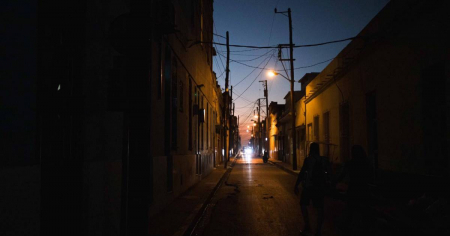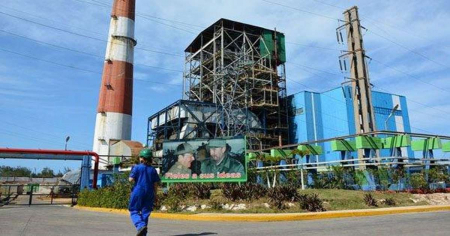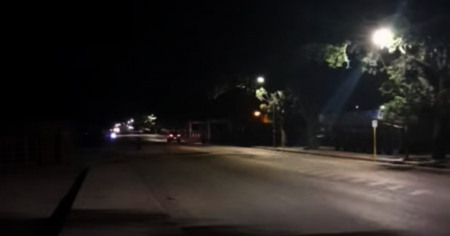A small group of people participated in the official March of the Torches in Santiago de Cuba, organized to commemorate the anniversary of the birth of José Martí.
The event, which traveled through some dark streets of the city, was accompanied by slogans chanted with evident disinterest.
A video shared on Facebook by independent journalist Yosmany Mayeta Labrada showcased a setting of decay, highlighted by the remnants of official propaganda and the widespread blackout affecting much of the city.
The march, held amidst a prolonged energy crisis, sparked strong criticism on social media. In the video shared by Mayeta, someone was heard saying about those marching: "Look at them, they probably haven't even had a snack!"
The people of Santiago, affected by ongoing power cuts, expressed their dissatisfaction with the situation and questioned the appropriateness of allocating resources to political activities while the community faces basic shortages.
Blackouts and public discontent
The Electric Company reported that a breakdown at the Pavón Substation left circuits 1, 2, 3, 7, 8, 9, and 10 in Santiago de Cuba without electrical service.
Although they assured that the service would be restored "gradually," residents of Santiago reported that the power outages last for hours and even days.

Comments on social media reveal widespread dissatisfaction:
"Since 9 in the morning we have been without power... now they are talking about Pavón. It's one lie after another. Every day they show us more that they are not concerned about the people; fewer marches and more solutions."
"Circuit 19 is a constant 'take and put away'. My God, the equipment breaks down and nothing happens. This is abuse and destruction of the people."
“I am from block 8, and they finished us off. It was nearly 24 hours without power. This is not going to change; whoever can leave Cuba should do so.”
Other comments reflect the frustration of those suffering from prolonged blackouts and not receiving coherent explanations from the authorities.
Some users reported that Circuit 24 was without electricity for more than 16 hours, while others criticized the lack of gas and the inability to meet basic needs.
A similar situation occurred in Camagüey, where the planned march was held with few attendees and amidst a massive blackout in the city, as documented by the independent journalist José Luis Tan Estrada on his social media.
Criticism of the pro-government march
The Torch March did not escape the scrutiny of the people of Santiago, who questioned the energy invested in its organization in contrast to the daily struggles of the citizens.
One user summed up the collective sentiment: “They did the march just like that. They dare: the energy that's lacking for the current is wasted on the march.”
The video of Mayeta Labrada sparked a wave of outrage, reinforcing the sentiment of abandonment by the authorities and the perception that these official activities are disconnected from the reality of the Cuban people.
The Torch March in Santiago de Cuba, held in the context of a widespread blackout, became a reflection of public discontent and distrust towards the authorities.
While a few were chanting slogans under the light of some torches, the majority of the Santiago residents sank into darkness, facing shortages that seem endless.
Filed under:





